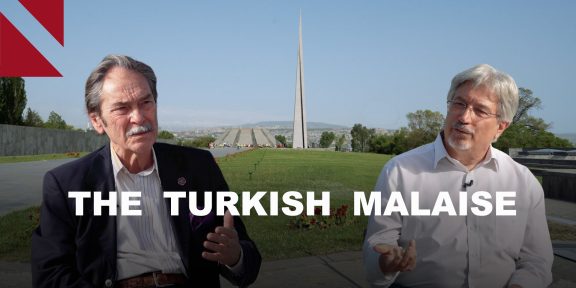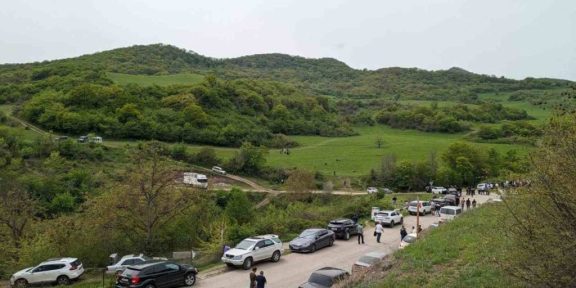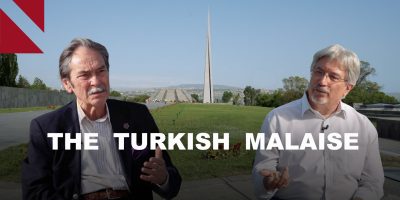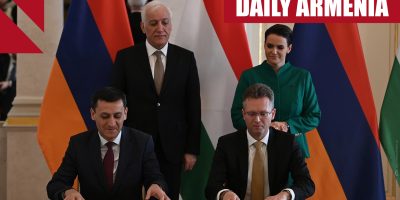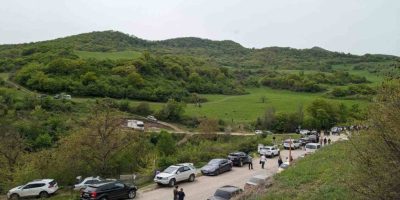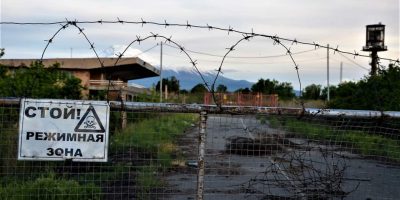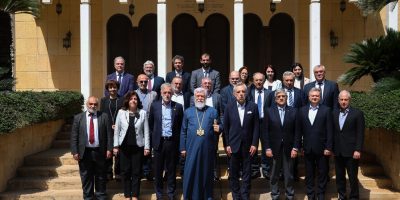Mediamax.am has published an interview with Ruben Vardanyan, businessman and philanthropist, co-founder of IDeA Foundation, and the Aurora Humanitarian Initiative, in addition to other investment and benevolent projects in Armenia, Russia and throughout the world. Here are excerpts from that interview.
Armenia’s model of management has exhausted itself
“We approached the 25th anniversary of Armenia’s independence in a situation where the country’s model of management, built during this period, has exhausted itself.”
“After the collapse of the USSR, the power in Armenia was taken by people born and raised in the Soviet system, or former dissidents, former Komsomol or Communist Party staff, former employees of special services. Many of them did and do love Armenia, however having no other experience in management but the one they witnessed in the Soviet Union, and having no opportunities to study in other countries, they recreated the management model that was the most comprehensible and familiar to them.
They think tactically, not strategically. Many of them believe that abusing their position of power to earn money is just normal behavior, not corruption. Those who can speak more languages, who are more cultured and better educated are left on the sidelines and unable to achieve any real success, because the dominant model in society is that of semi-criminal machismo. In such an environment cultured and smart people have nothing else left to do but express their disagreement with words, not deeds.
In this model the leaders of the Armenian state don’t see themselves as leaders of the Armenian nation, which entails a clear distinction between Armenia as a country and a nation living all over the world. A part of the elite welcomes the diaspora’s assistance programs, accompanying it with, “We are happy to see you in Armenia, it’s beautiful and safe here, but don’t interfere with what we believe we should do, as there is much you don’t understand.
This model is built on the system of a closed society, and unfortunately, within it added value is formed not by the manufacture of new products or provision of services, but by the redistribution of resources – monopolization of imports, non-payment of customs fees, “appropriation” of assistance from international organizations, etc.
A lot of businessmen in Armenia got rich not because of their effective business management, but due to special preferences, tax evasion or manufacturing counterfeit or sub-standard products. This is not just about the oligarchs.”
“The absence of competition with the outside world has led to a situation where we have only a handful of organizations in Armenia, which comply with high international standards. The closed nature of the model has a negative impact on society as a whole, evident in many sectors – journalism, science, culture.”
“We must face up to the truth – we don’t produce competitive products or services. Yes, we have several successful companies in the finance and IT sectors and food manufacturing, but their share isn’t particularly large. We talk a lot about entering foreign markets, but we don’t always realize that those markets are extremely competitive, and we can only compete if we produce innovative and high quality products with a high performing workforce.”
“We talk a lot about the need for attracting foreign investment, but we don’t always take kindly to investors. If we talk about the model of an open country, we should understand that, as well as its advantages, the model also brings specific challenges. One of the main challenges is the level of our readiness to accept that people of other national and religious identities from different countries – Iran, Turkey, Russia, Georgia – will come to our country not just to visit but to do business as well.”
Karapetyan’s appointment is a serious change of the status quo
“I think the main challenge in this situation is for the President of Armenia. We can see that he has begun making changes and has appointed Karen Karapetyan as the Prime Minister. This appointment is a serious change of the status quo and the first big step to the transformation of the model and the elite.”
“We should all realize the necessity of unconditional support for the President and Prime Minister in their efforts. Nothing will be achieved without that support. The understanding that we are in a profound crisis should not lead to panic. On the contrary, an honest diagnosis and then concentrating all resources on the treatment will radically increase our chances of success.”
“We have to admit that the appointment of a new person to the position of Prime Minister offended a large group of people. If the model begins to change, the number of these people will grow. These processes started a year ago, when Samvel Karapetyan purchased the Electric Networks of Armenia. The company, which for years had been unprofitable and constantly demanded higher tariffs, in one year turned into an efficient and profitable enterprise. This means that some people lost their source of income, or their expenses increased and their businesses ceased to be profitable. Imagine what happens to them if they pay all their taxes and compete fairly on the market.
We will face a situation where society will have more and more people losing their jobs or income sources. At the same time, the new Government of Armenia has a tough task at hand in proving to people that the Government is efficient. The task is further complicated by the fact that reforms, which begin with very painful changes, should be carried out several months prior to the elections, and that their results will be seen only years down the line.
In these circumstances, it is very important to have an open dialogue on all levels, where we bring things out into the open. We are afraid of talking about many problems, although there is nothing to fear if the discussion is held in a civilized manner. We should talk to people a lot and explain a lot, make unpopular decisions sometimes. The most important thing is to go through with these decisions, as “half-reforms” in our country can lead to a complete collapse.”
“We think that there is no alternative to the support for the Prime Minister and his team; we won’t get a second chance. After the approval of the new program, the government needs to put its plans into action immediately, and we are ready to contribute to this with our intellectual, financial, organizational and human resources, being completely aware of the fact that the program is still aimed at solving short-term problems and cannot reflect the full scope of the systematic changes required.
Not much time is left before the 2017 parliamentary elections, and there is, unfortunately, too much negative energy and anger within the public, which creates the threat of social unrest. Another serious challenge is apathy and indifference. It is very hard to wake people from their hibernation and stimulate them to get involved in the process of change. A lot of people, unfortunately, take this position – let him (Prime Minister) try, and we‘ll sit and watch. This is a very dangerous attitude, because as I said, we will not have time for a second chance. If Karen Karapetyan and his team succeed, that means we all succeed, and vice versa. His failure will be our failure as well, and Karen Karapetyan’s success is vital for all of us, and I would especially emphasize, for Artsakh. If we do not have a strong Armenia, we cannot possibly expect to reach the right compromise on peace, which is necessary for the whole region. The situation around this issue has escalated during the last year, so we do not have much time for this matter either.”
The еlites in Armenia and diaspora are not quite ready for dialogue
“Another meaningful issue is the role and place of the diaspora, and its involvement in the affairs of Armenia. Starting this dialogue is no simple task, as the elites both in Armenia and the diaspora are not quite ready for it, unfortunately.”
Although an independent Armenia has been the biggest dream of Armenians worldwide, the Armenian elite in different countries has failed to self-organize and, apart from rare exceptions, move to Armenia, as many prominent Armenians did in the 1920s, when living conditions here were much worse than they are now.
It is evident to me that the relationship between Armenians in the diaspora and in Armenia cannot remain like it has for the last 25 years.
Well-off Armenians from wealthy diaspora families continue giving money to charity mechanically, but except for the diaspora in Russia, perhaps, there are almost no new wealthy and successful Armenians who do it systemically, like they used to.
In XX century representatives of the diaspora donated money necessary for keeping the traditions alive. However, charity is a form of support for the closed society too. Today money is needed for the development of the country, and that is far more complicated. Studies by McKinsey show that Armenia needs annual investment of USD 500mln in development projects for 15 years to double its GDP, and we can only dream about that right now. It is a perfectly achievable goal in the model of an open regional hub, and an impossible one in the old model.”
Read the full interview on Mediamax.am.





